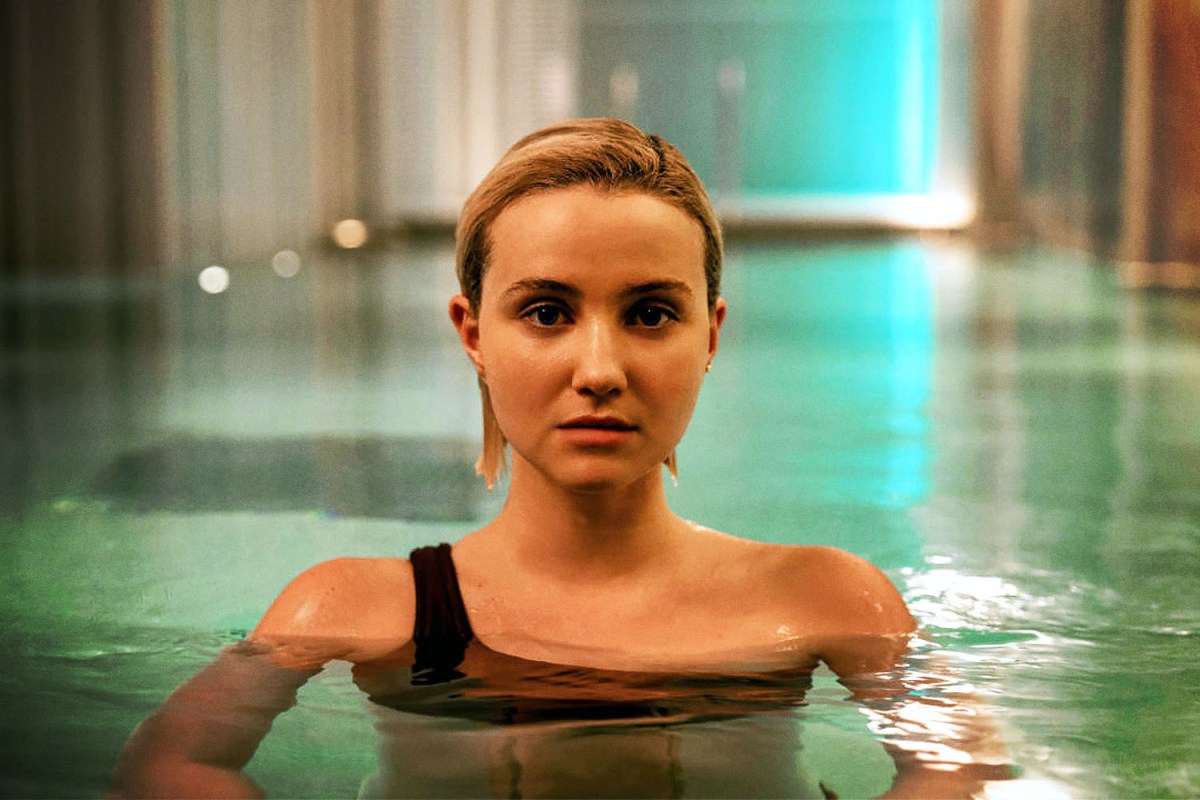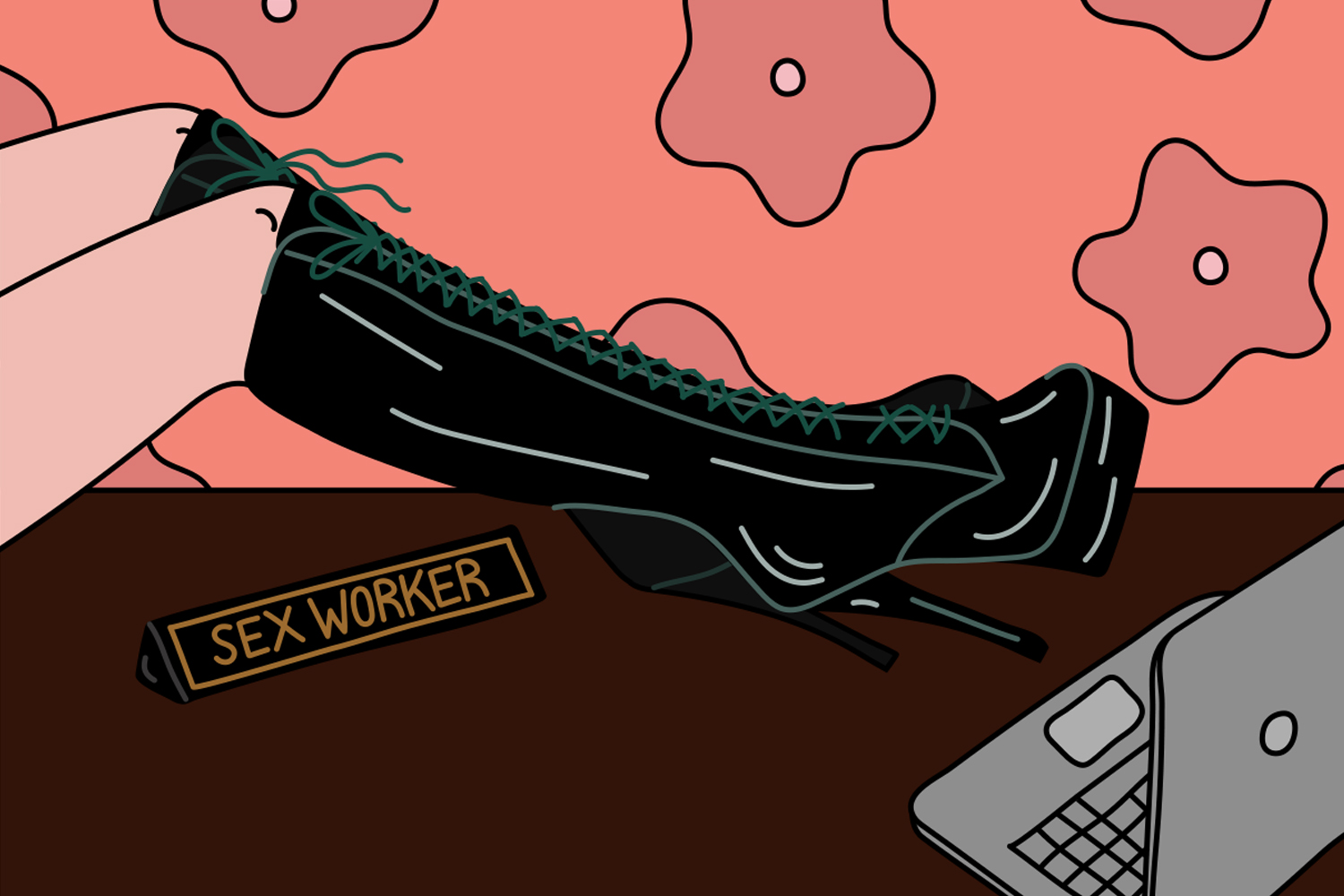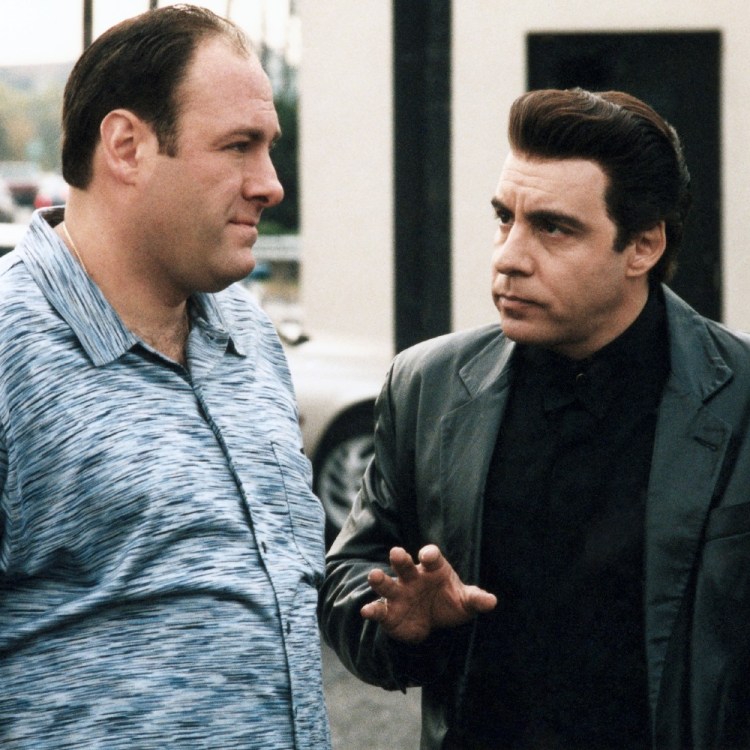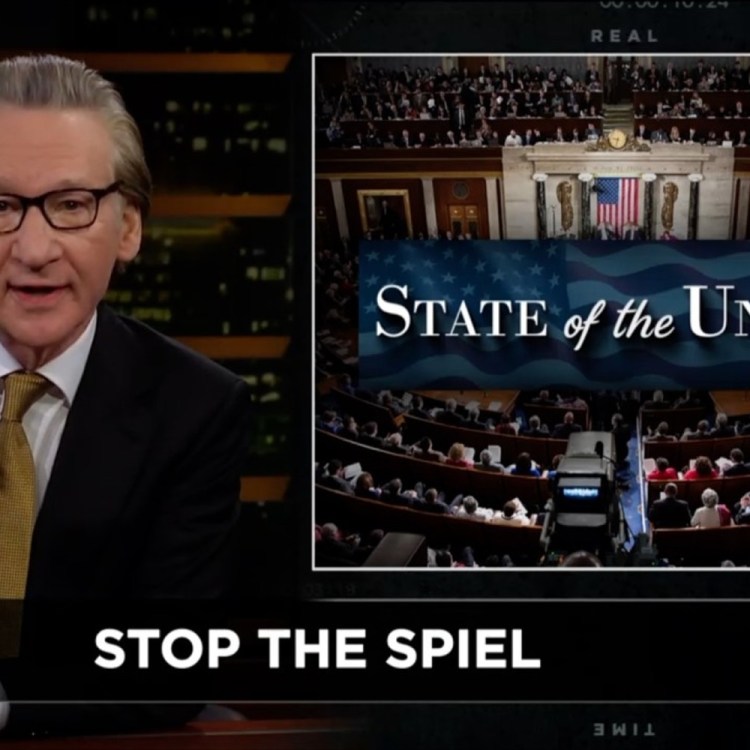“You don’t get a phone call from Steven Soderbergh every day.”
With that unexpected call, writer-director Anja Marquardt began her journey down the rabbit hole. Having previously made a splash with her debut feature She’s Lost Control, a coldly precise 2014 drama about sexual surrogacy, Marquardt was tasked with conceiving and bringing to life the third season of the Starz anthology series The Girlfriend Experience.
Based on Soderbergh’s 2009 film of the same name, The Girlfriend Experience explores the world of high-end escort services from the point of view of the sex workers venturing into it. The first season was co-created, written and directed by indie filmmakers Lodge Kerrigan and Amy Semeitz, and starred Riley Keough as a student-turned-escort. The directors followed it up with an unusual second season, each helming two completely new, completely separate stories delving deeper into the so-called “girlfriend experience.” For the third season, Marquardt brings another new lens to the series, transporting its action from the U.S. to London, and setting the drama within the universe of bleeding-edge tech.
Season 3 stars Julia Goldani Telles, previously of The Affair and Bunheads, as Iris, a young neuroscience student who goes to work for a tech company that designs AI software for a matchmaking service. On the side, Iris works for a mysterious escort service called The V, first interviewing for the company via virtual-reality meeting. She soon finds her worlds colliding as she starts to use behavioral data gleaned from her dates to hone the AI algorithm she’s crafting, leading her into a double-life of intrigue befitting a ‘70s paranoia thriller.
Marquardt tells InsideHook she was already at work on other writing projects involving the tech industry when she received that fateful call from Soderbergh. “I was able to channel the interest that I had in artificial intelligence and neuroscience into the season,” she says. “What if Iris, what if the protagonist, is almost like a spy?”
The themes of AI, espionage and sex work connected perfectly with the overaching theme of the series. “The franchise is really based on the idea of free will versus determinism,” Marquardt explains, recalling the edict handed to her by the network. “These women are making a choice here. It’s a free-will situation. And we don’t judge it, but we want to elaborate on character and show these three-dimensional people behind these choices.” At the same time, Marquardt adds, “the nature of transactional relationships — where it’s clear it’s a transaction — is a simulation, if you will, of connection. And the idea of simulation, for me, is sort of at the heart of what we’re all experiencing.”
What she’s getting at here is the symbiosis of tech and sex work, and the transactional relationships inherent to both. Consider the business model of many modern social media platforms, in which the user is, in essence, the product. Companies like Facebook offer us a simulated existence in exchange for a small fee: the endless stream of personal data they collect about us, which they in turn sell to advertisers, brands and politicians. “We’re sort of living in a world where that experiment, everyone’s participating in it, and no one’s really questioning it too much,” Marquardt says. “And I think, in the case of The Girlfriend Experience, the world of NGM, the tech startup that Iris starts to work at, that’s sort of the status quo that everyone who is working at that company has completely internalized. They’re all drinking the Kool-Aid every day.”
Marquardt isn’t herself a pessimist about the future of technology, though she is reasonably wary. “Everything can be used for great, great good, but also great doom,” she says. “And, you know, I would hope that at the very least, we can rally around those important questions in a very inclusive fashion and make sure that we’re shepherding this along in the right way, because it seems like the train has left the station. Much has been said about human bias and AI, and racial bias and AI, and there’s just a lot of stuff that needs to be dissected.”
Adding to this conundrum is the nature of sex work in the online world, whether in entirely virtual spaces like cam sites or on platforms that connect sex workers with clients, like the now-defunct Backpage. “I kind of wanted to untether this season from the question of legality,” Marquardt says. “Iris is this fish out of the water, she leaves behind her life in the U.S. and goes to London for a pretty radical reimagining of what her life can and should be. She hooks up with this elusive escort agency that is completely decentralized. We don’t really know if they even have any headquarters that are physically based in any country. All we know is they’re conducting their business entirely virtually. The interview is taking place in VR and financial transactions take place using blockchain technology. So really it’s kind of beyond the question of legality and paying taxes.”
Marquardt’s approach to the material also takes on a surreal edge in moments, reflecting Iris’s descent into a confusing world where the distinctions between the “real” and the virtual begin to blur. “The interesting challenge that I was aware of going into it was sort of, ‘How do we achieve something that feels grounded in performances, allowing for naturalism of behavior, that feels real?’ And then on the other hand, we’re dealing with these elusive ideas of artificial intelligence and creating something that is not quite real and has an uncanny feel to it.”
One technique for navigating that middle ground, evident in the jarring virtual interview scene that opens the first episode, is the use of disjointed audio and video, with characters occasionally speaking to each other while their lips remain firmly shut. “It felt really important to have that scene be sort of somewhere in the middle, you know, so we do get this uncanny feel of like, ‘Wow, she’s clearly a person. But there’s also something else going on here.”
As the season progresses, that uncanniness only gets more extreme, rendering the work Telles does in the series as Iris that much more crucial. “That was really such an intense collaboration, because Julia is the show. Iris is in every scene,” Marquardt points out. “There is a fair amount of transformation that she undergoes even from scene to scene — from pocket of reality to pocket of reality — that she has to fill with a different persona and make a choice of how she presents herself, because the end game that she’s carrying into these experiences is to interact with clients in the most effective way.”
Also evident in the show’s striking opening scene is its willingness to challenge viewers, both stylistically and thematically, which Marquardt admits is her ultimate goal.
“There is a rabbit hole that Iris goes into, and it goes pretty deep, but I think the rabbit hole doesn’t stop where the show ends,” Marquardt says. “I think the show is a bit of an open invitation to gather some thoughts and minds around those bigger questions that are touching all of our lives. And hopefully, we’ll collectively have a very, very inclusive conversation about where to take it from here.”
The Charge will help you move better, think clearer and stay in the game longer. Subscribe to our wellness newsletter today.























